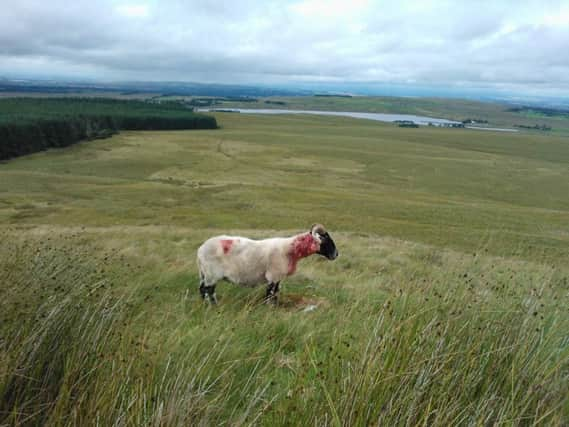Borders dog owners asked to lead by example


While there was a fall in numbers of attacks on livestock in Scotland from 2017 to 2018, figures remain historically high with an 80% increase in the cost of attacks since 2015.
Known as livestock worrying, dog attacks on farm animals can result in horrific and often fatal injuries.
Advertisement
Hide AdAdvertisement
Hide AdEven if a dog doesn’t make contact, the distress of the chase can cause sheep to die and miscarry their lambs.
Leading rural insurer NFU Mutual, which insures three quarters of all farmers, says farm animals worth more than £750,000 have been savaged by dogs in Scotland over the past four years, and is mounting a new campaign to educate dog owners of the best practice.
NFU Scotland’s head of policy, Gemma Cooper, said: “The cost of attacks on livestock remains far too high and we need irresponsible owners to act.
“Our recently-launched campaign – Control Your Dog on Farmland – encourages just that and for owners to keep their dogs on a lead on farmland.
“The message to dog owners is clear, they are responsible for the actions of their pet, and should be prepared for consequences if they do not exercise adequate control. What also needs to be taken into consideration is the emotional impact attacks on livestock cause for the farmers and those involved too.
“We will continue our work to raise awareness of this issue and for tighter and more robust legislation to deal with those who commit this crime.”
A Borders farmer told us she believed the problem is not quite as prevalent in the Borders, due to most dog owners being more at one with the countryside.
Heather Runciman, whio farms near Lauder with her husband Dougie, said: “I think because we live in such a beautiful part of the country that people seem somehow more connected with the countryside and what happens within it, thankfully.
Advertisement
Hide AdAdvertisement
Hide Ad“Being mindful is what is needed from dog owners at this time of year ... recognising that spring is lambing season for most farmers in the Borders and being aware that there will be young vulnerable lambs and protective mothers around, and to keep dogs on leads and also keep your distance.
“However, folks need to remember that keeping dogs on leads around livestock at any time of the year is best practice.
“Once a dog has a taste for chasing sheep it’s very difficult to stop them.
“Also, farmers do have the right to shoot any dog that is found attacking or chasing sheep.”